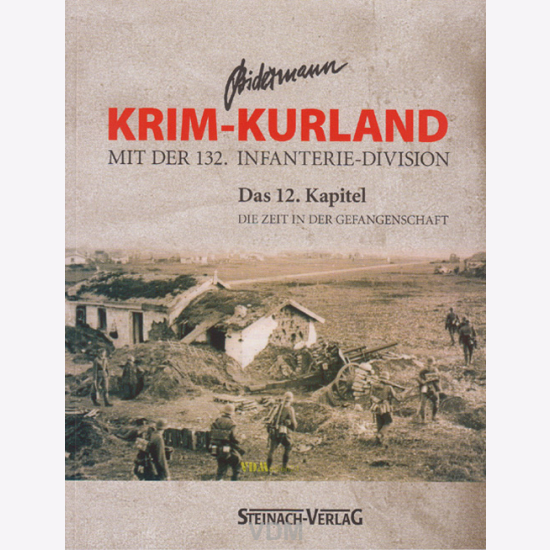- Gottlob Herbert Bidermann served in that lethal theater from 1941 to 1945, and his memoir of those years recaptures the sights, sounds, and smells of the war as it.
- Quotes by Gottlob Herbert Bidermann “It was widely accepted within the ranks of those fighting in the east that death on the battlefield was preferable to an unknown destiny in a Soviet prisoner of war.
- Gottlob Herbert Bidermann. Eigenverlag G.H. Biedermann, 1964 - World War, 1939-1945 - 360 pages. From inside the book. What people are saying - Write a review. We haven't found any reviews in the usual places. 48: 30 other sections not shown.
In Deadly Combat A German Soldier's Memoir of the Eastern Front (Modern War Studies (Paper)) by Gottlob Herbert Bidermann ISBN 13: 225 ISBN 10: Paperback; Lawrence, Kansas, U.s.a.: University Press of Kansas, September 2001; ISBN-13: 9225. In Deadly Combat In the hell that was World War II, the Eastern Front was its heart of fire and ice. Gottlob Herbert Bidermann served in that lethal theater from 1941 to 1945, and his memoir of those years recaptures the sights, sounds, and smells of the war as it vividly portrays an army marching on.
| In Deadly Combat: A German Soldier's Memoir of the Eastern Front by 4.11 avg rating — 945 ratings — published 1995 — 5 editions | Rate this book |
* Note: these are all the books on Goodreads for this author. To add more, click here.

“It was widely accepted within the ranks of those fighting in the east that death on the battlefield was preferable to an unknown destiny in a Soviet prisoner of war camp. This mentality often played a role in the many acts of bravery demonstrated by individuals or entire units. During the closing days of the war it was not at all uncommon for entire companies, battalions, and battle groups to fight to the last man, the survivors going into captivity only when ammunition was exhausted and wounds were too grave to allow further resistance.”
―
―

| topics | posts | views | last activity |
|---|---|---|---|
| THE WORLD WAR TWO...:2012 - October - 'Enemy at the Gates' by William Craig | 155 | 122 | Dec 08, 2012 10:17AM |
| The History Book ...:ARCHIVE ONE: PLEASE INTRODUCE YOURSELF ~ | 6581 | 4250 | May 08, 2013 03:33PM |
| THE WORLD WAR TWO...:2013 - September Theme Read - Eastern Front | 139 | 122 | Nov 02, 2013 09:41PM |
| THE WORLD WAR TWO...:2015 - December - Theme Read - The Ardennes Offensive 1944 | 175 | 82 | Jan 15, 2016 12:19PM |
| THE WORLD WAR TWO...:2017 - June - Theme Read on book/s covering the Eastern Front (Land, air & sea) | 228 | 91 | Aug 27, 2017 02:05PM |
| THE WORLD WAR TWO...:2018 - August - WW2 Biography | 159 | 114 | Oct 25, 2018 06:53AM |
| The History Book ...:RECENTLY ACQUIRED BOOKS | 667 | 862 | Jun 11, 2020 04:08PM |
| The History Book ...:*SECOND WORLD WAR -GENERAL DISCUSSION | 875 | 1127 | Sep 05, 2020 07:20AM |
Is this you? Let us know. If not, help out and invite Gottlob to Goodreads.
Firsthand perspectives of German WWII infantrymen are rare, as respected historian Dennis Showalter (Tannenberg: Clash of Empires) points out in his excellent introduction. Bidermann, who is an 18-year-old private in the 132d Infantry Division at the beginning of this memoir, takes us through the invasion of the Soviet Union in 1941, passage across the Dnieper and southern steppes, battles in the Crimea, engagements in northern Russia and retreat through Riga to the Baltic. He retrospectively reviews historical records and sketches the daily happenings and ambience of his unit in a matter-of-fact and unpretentious--yet invariably proud--tone. The translation is direct and generally graceful, sometimes lyrical. Retired Navy SEAL Zumbro, who has translated German accounts for the Eisenhower Center of the University of New Orleans, has translated and expanded Bidermann's 1964 private German publication, utilizing the same preserved documents and retrospective interviews from other members of the 132d. Before war's end, the unit was cut off in Courland, though Bidermann claims it was 'never defeated in open battle.' After surrender in 1945, the remnants of the division were held in extended captivity. The Wehrmacht subculture, which Bidermann describes but does not connect back to the Reich's atrocities, was compulsively 'professional,' with loyalty to fellows its all-consuming central ethic. This ethic seemingly sustained these soldiers through continual dire peril of body and soul. Some did survive. B&W photos. History Book Club selection. (Apr.)
Reviewed on: 05/01/2000
Release date: 05/01/2000
Genre: Nonfiction
Release date: 05/01/2000
Genre: Nonfiction

MP3 CD - 978-1-5414-5284-8
Compact Disc - 978-1-5414-0284-3

FORMATS
In Deadly Combat Bidermann Pdf
TIP SHEET
